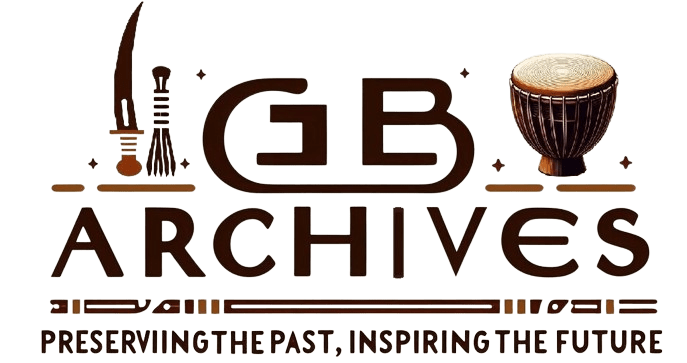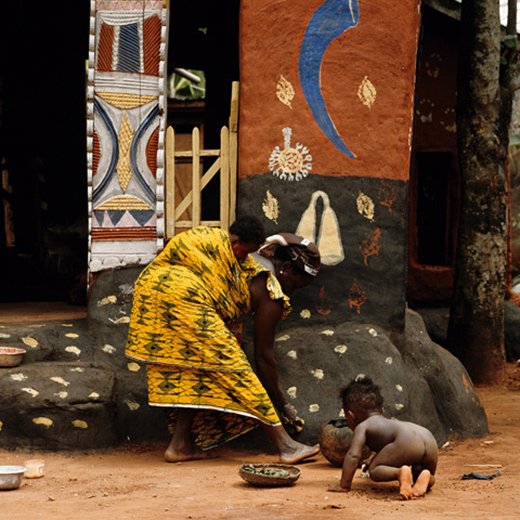Masks hold a special place in the cultural and artistic heritage of the Igbo people. These elaborate creations are not merely decorative objects; they carry deep spiritual, social, and cultural meanings. From ancient times to the present day, Igbo masks have played crucial roles in ceremonies, rituals, and festivals, symbolizing various aspects of life and the cosmos.
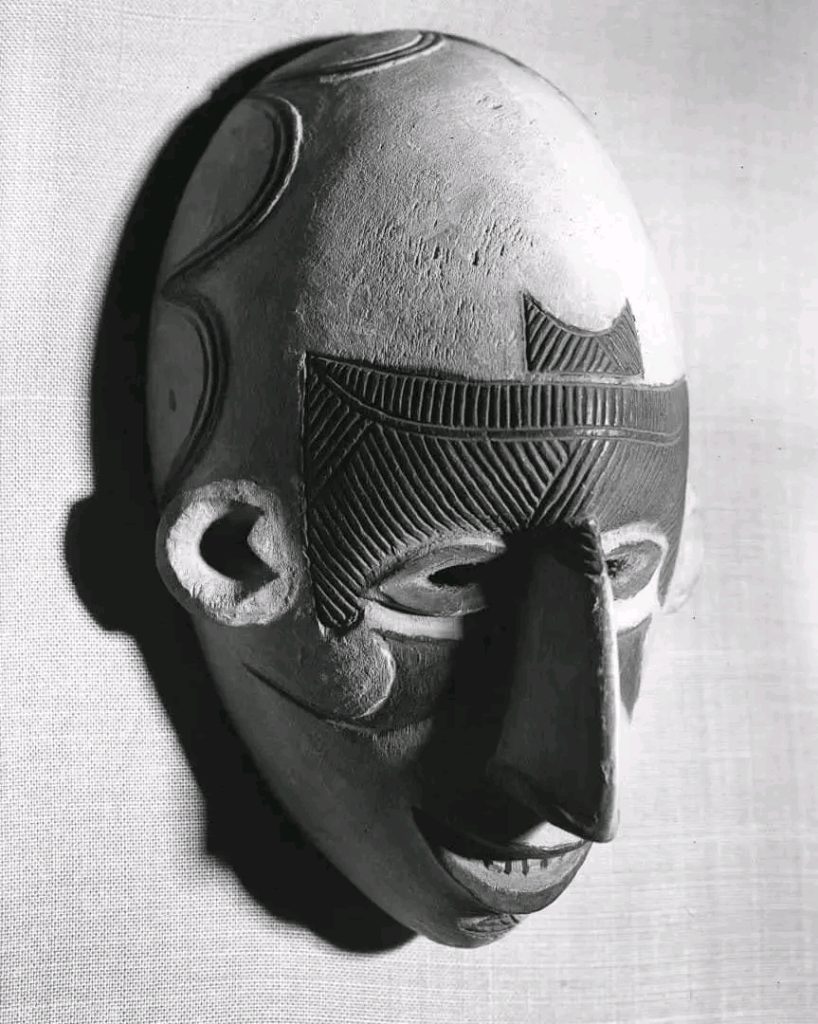
Historical Background
Skilled artisans have crafted masks for centuries. These artisans, often highly respected community members, used locally sourced materials such as wood, fabric, and natural dyes to create masks that were both beautiful and symbolic. The designs and styles of masks evolved over time, reflecting changes in society, religion, and artistic trends.
The historical roots of Igbo mask-making trace back to pre-colonial times when these masks served as integral components of religious and social ceremonies. Masks acted as mediums through which the Igbo people connected with the spiritual world. The craftsmanship involved in creating these masks required a deep understanding of cultural symbols and motifs, passed down through generations.
Cultural Significance
Igbo masks brim with symbolism. Each mask represents a specific spirit, deity, or ancestor, conveying messages and performing functions within the community. For example, some masks embody the spirits of ancestors, providing a means for the living to communicate with the deceased. Others represent various deities, invoked in rituals for their blessings or protection. Artisans carefully choose the designs, colors, and patterns of each mask to reflect these meanings.
The symbolic meanings behind Igbo masks are profound and varied. Masks used in the Igbo masquerade, or “Mmanwu,” bridge the gap between the physical and spiritual worlds. These masks can represent moral and ethical principles, serve as agents of social control, and even act as judges in community disputes.
Examples of Igbo Masks
Okoroshi Masks
The Okoroshi festival, which marks the transition from the farming season to the harvest season, prominently features Okoroshi masks. These masks often have a fierce appearance and ward off evil spirits, ensuring a bountiful harvest. The festival involves elaborate performances where masked dancers embody both malevolent and benevolent spirits, symbolizing the duality of nature and the need for balance.
Agbogho Mmuo Masks
Agbogho Mmuo, meaning “Maiden Spirits,” are masks worn by male performers who embody the spirits of beautiful young women. These intricately decorated masks appear in dances that celebrate femininity, beauty, and fertility. The performances highlight the virtues of young women, serving as a form of social commentary on ideal feminine behavior and appearance.
Mmanwu Masks
Mmanwu, or masquerade masks, encompass various masks used in different ceremonies and festivals. These masks can represent a wide range of characters, from ancestors to deities, and play central roles in many cultural performances and rituals. Each Mmanwu mask has a unique role, whether to entertain, educate, or protect the community.
Mask-making Process
Creating an Igbo mask involves a meticulous and sacred process. Artisans begin by selecting the right type of wood, which they then carve into the desired shape. The carving process is both an artistic endeavor and a spiritual act, often accompanied by prayers and rituals. After carving, the mask is painted and adorned with materials such as cloth, beads, and feathers. Each step requires great care to ensure that the mask is not only aesthetically pleasing but also spiritually potent.
Artisans select materials carefully, as different woods and dyes hold specific symbolic meanings. Certain types of wood are chosen for their believed spiritual properties, while natural dyes convey particular symbolic messages. The craftsmanship involves not only artistic skills but also an understanding of the cultural and spiritual significance of each element used in the mask.
Masks in Rituals and Festivals
Masks play integral roles in many Igbo rituals and festivals. During these events, masked performers take on the identities of the spirits or deities they represent, bringing these entities to life through dance, music, and drama. For example, during the New Yam Festival, masks appear in performances that honor the earth goddess and celebrate the harvest. Similarly, in funerary rites, masks guide the spirits of the deceased to the afterlife and protect the living from malevolent forces.
In addition to their roles in traditional ceremonies, masks celebrate Igbo heritage and educate younger generations about their cultural history in modern contexts. Festivals often feature elaborate masquerades where participants and spectators engage in a shared cultural experience, reinforcing communal bonds and cultural identity.
Modern Perspectives
In contemporary Igbo society, the tradition of mask-making and masquerade continues to thrive, albeit with some changes. Modern artisans blend traditional techniques with new materials and styles, creating masks that reflect both the past and the present. Additionally, masks have found a place in the global art market, appreciated not only as cultural artifacts but also as works of art. However, the cultural significance of masks remains intact, and they continue to play vital roles in Igbo life.
Today’s Igbo masks often appear in museums and art galleries worldwide, highlighting their artistic and cultural value. This global recognition has helped preserve the tradition and brought greater awareness to the rich cultural heritage of the Igbo people. Despite the changes brought by modernization, the essence of Igbo mask-making remains a powerful testament to the enduring legacy of this ancient art form.
Conclusion
Igbo masks transcend mere objects; they testify to the rich cultural heritage and artistic ingenuity of the Igbo people. These masks, with their intricate designs and profound meanings, offer a window into the spiritual and social life of the Igbo community. As we continue to appreciate and preserve these cultural treasures, we ensure that the legacy of Igbo mask-making endures for future generations.
What do you think about the role of masks in Igbo culture? Share your thoughts in the comments below!
Explore Further
To explore this topic in more depth, we recommend these books reviewed on our website.
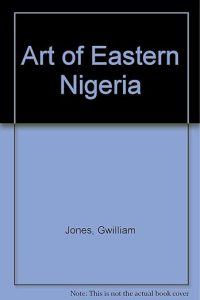 Recommended Books
Recommended BooksTitle: Art of Eastern NigeriaAuthor: Gwilliam I. JonesPublisher: Cambridge University PressPublication Date: August 31, 1984Format: HardcoverPages: 240ISBN-10: 0521259274ISBN-13: 978-0521259279Language: English Overview “Art of Eastern Nigeria” by Gwilliam I. Jones is a significant work that explores the rich artistic traditions of Eastern Nigeria. This book provides a comprehensive analysis of the region’s art forms, examining their cultural, historical, and social contexts. About the Author Gwilliam […]
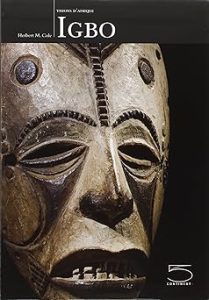 Recommended Books
Recommended BooksTitle: IgboAuthor: Herbert M. ColePublisher: CINQ CONTINENTSPublication Date: September 5, 2013Format: Paperback, 238 pagesISBN: 978-8874396375 Overview “Igbo” by Herbert M. Cole is a French-language exploration of the diverse forms of art belonging to the Igbo people, who reside in southeastern Nigeria. The book covers artistic achievements from the 9th and 10th centuries to contemporary times, […]
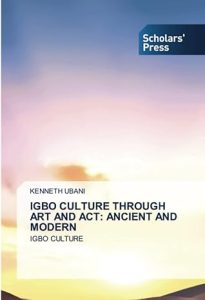 Recommended Books
Recommended BooksTitle: Igbo Culture Through Art and Act: Ancient and ModernAuthor: Kenneth UbaniPublisher: Scholars’ PressPublication Date: January 27, 2022Format: Paperback, 200 pagesISBN-10: 6138968859ISBN-13: 978-6138968856 Overview “Igbo Culture Through Art and Act: Ancient and Modern” by Kenneth Ubani examines the rich cultural heritage of the Igbo people. This book explores traditions, art forms, and cultural practices, showing […]
 Recommended Books
Recommended BooksTitle: African Cultures Before 21st Century: My Igbo TraditionsAuthor: Madueke EbukaPublication Date: September 25, 2023Format: Kindle Edition, 17 pagesASIN: B0CJVGBZYR Overview “African Cultures Before 21st Century: My Igbo Traditions” by Madueke Ebuka is a concise guide that delves into the rich cultural heritage of the Igbo people, who reside in southeastern Nigeria. The book aims […]
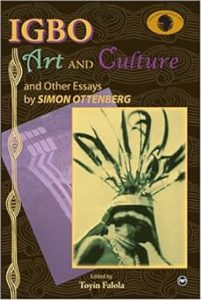 Recommended Books
Recommended BooksTitle: Igbo Art And Culture: And Other EssaysAuthor: Simon OttenbergEditor: Toyin FalolaPublisher: Africa World PressPublication Date: January 1, 2006Format: PaperbackPages: 482ISBN-10: 1592214428ISBN-13: 978-1592214426Language: English Overview “Igbo Art And Culture: And Other Essays” by Simon Ottenberg is a comprehensive collection of essays that encapsulates over forty years of scholarly research on African art, both traditional and modern. The book focuses primarily on the arts of the […]
Discover more from Igbo Archives
Subscribe to get the latest posts sent to your email.

